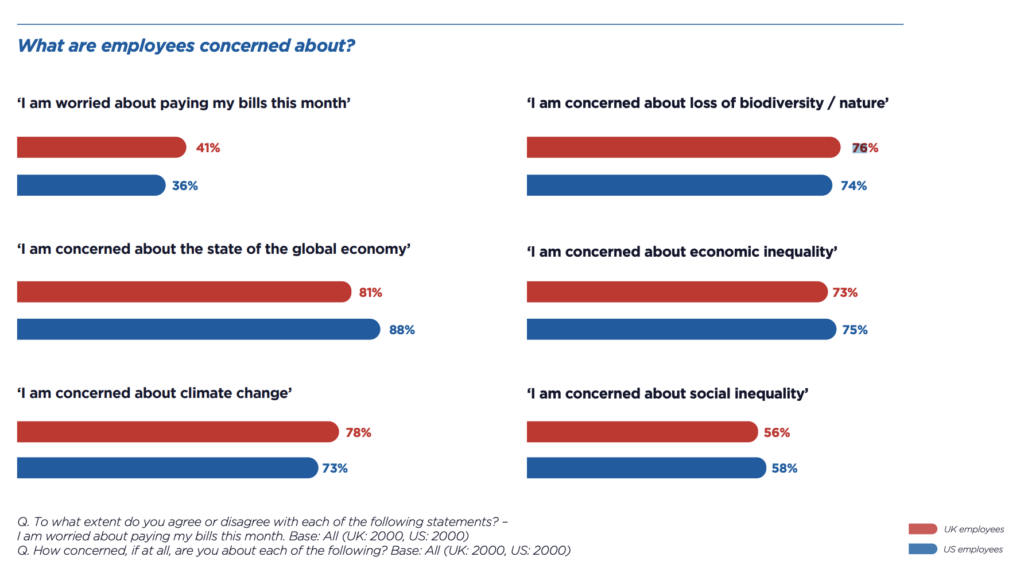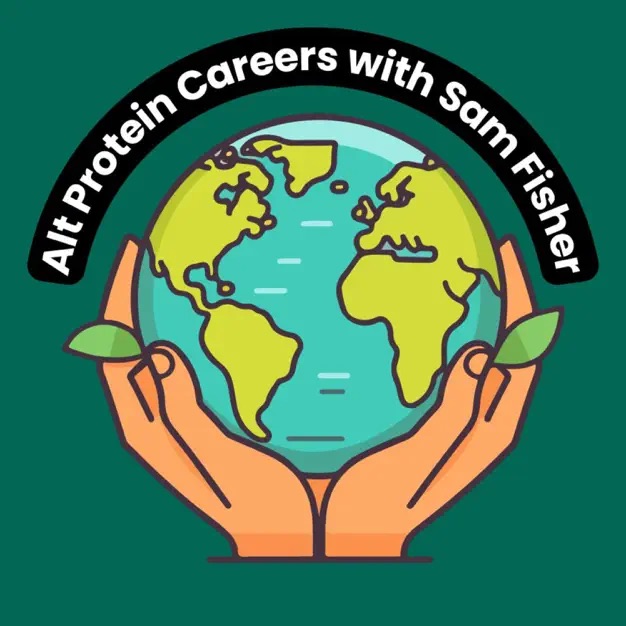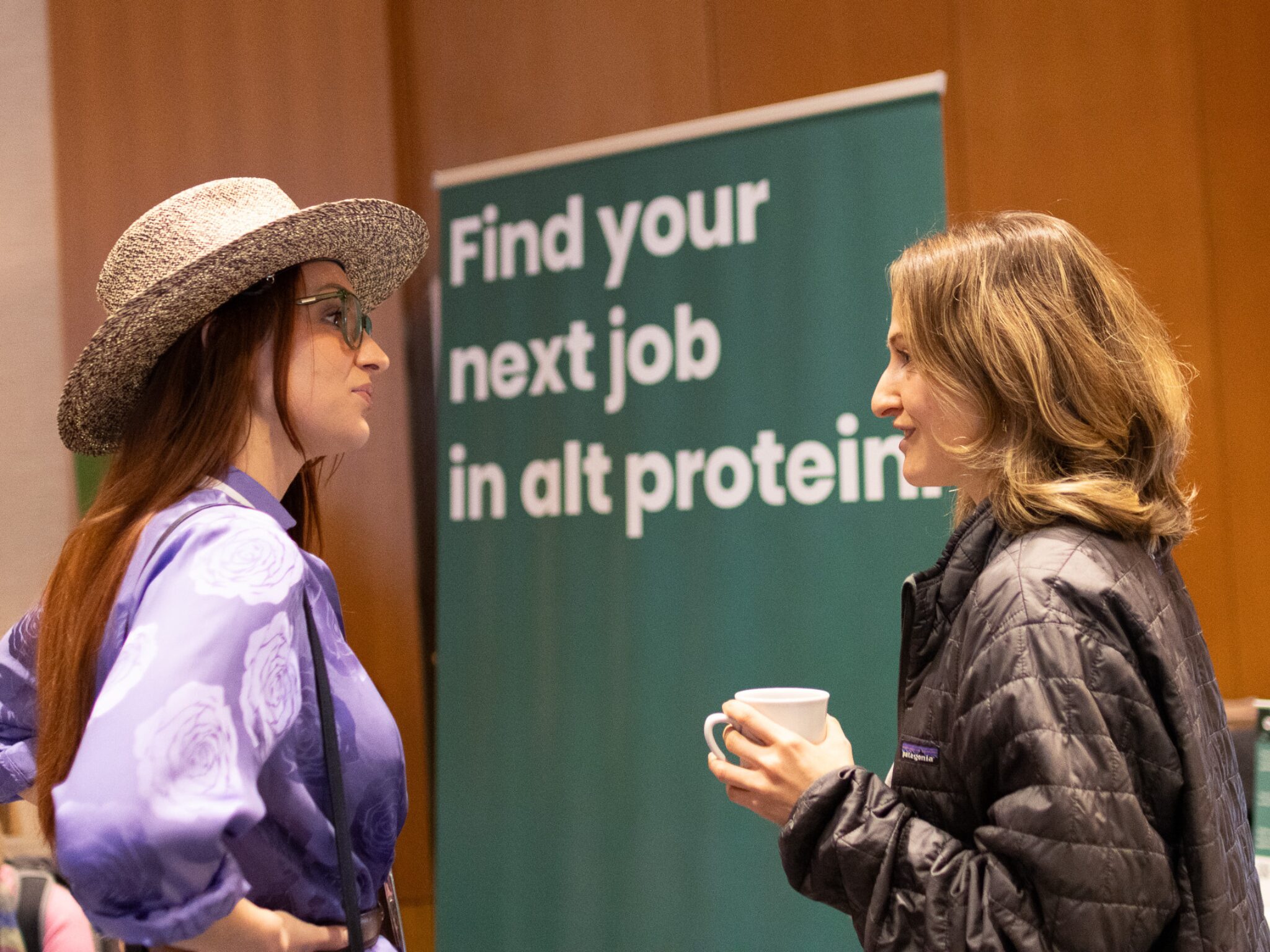5 Mins Read
With more and more people leaving their jobs or turning down new ones because of their companies’ climate actions (or lack of them), a new podcast focuses on how alternative protein careers can help people who are climate quitting.
2023 was the year of quiet quitting. Can 2024 be the year of climate quitting?
That’s what Alt Protein Careers, a career services and recruiting firm, is suggesting. Climate quitters are people who leave or turn down a job because they’re unsatisfied with the company’s environmental, social and corporate governance (ESG) record.
It’s a trend concentrated among youth – a 6,000-person KPMG study last year found that ESG factors influence employment decisions for almost half of UK office workers, and one in three Brits aged 18-24 have rejected job offers based on ESG records. Of the latter demographic, 14% are most likely seeking a job linked to ESG.
With animal agriculture making up between 11-19.5% of the world’s total emissions, and meat accounting for 60% of the food system’s emissions, the importance of alternative proteins in the climate fight has never been more apparent. In fact, a landmark study last year revealed that veganism can reduce emissions, water pollution and land use by 75% compared to a meat-rich diet.
“There wasn’t always this level of awareness of how fundamental alternative protein solutions are to solving the climate crisis,” says Noga Golan, founder and managing director of Alt Protein Careers. “People used to think that if they didn’t have a degree in renewable energy or climate science, there was no way to meaningfully contribute. But that’s no longer the case.”
Meaningful careers are becoming increasingly important

Alt Protein Careers argues that the values and definitions of a prestigious job have shifted from compensation and big-name employers to making a tangible impact through careers. This is evident in consumer research going as far back as 2018, when the Harvard Business Review reported that people are willing to accept a lower-paying job if it means they’re doing meaningful work.
“People don’t want to be sitting on the sidelines anymore,” explains Caroline Colwell, the firm’s marketing manager. “Individuals are increasingly drawn to jobs where they can be part of the solution.”
The KPMG study isn’t the only research highlighting this change in thinking. A 4,000-person survey last year by former Unilever CEO Paul Polman found that 76% of Americans and 66% of Brits want to work for companies that make a positive impact on the world, while over 60% said they’d like to see their employers take a stronger stance on the environment. In fact, half of respondents would consider resigning from their positions if their workplace’s values didn’t align with theirs, and a third have already done so.
While ESG used to be a strong selling point, Alt Protein Careers thinks this is no longer enough. Mission-driven individuals are tired of the lip service, and want to work in places that are actively making a difference. Recognising this need, the firm has launched a dedicated jobs board and resource centre to help people find such roles.
“The alt-protein industry has experienced some volatility: we’ve seen a few companies downsizing, but in general, we’re still seeing a lot of companies eager to hire strong talent,” says Golan. “Protein alternatives that don’t involve large-scale factory farming are the only way for us to achieve global food security.”
But are climate quitters making the connection between the food industry and the climate crisis? “Some are, and some aren’t,” she tells Green Queen. “For a long time, it wasn’t an obvious connection (when people thought of working on climate, they often mostly thought of the renewable energy industry), but we’re seeing a surge in the amount of professionals that are making the connection, and that are starting to really care and want to make a difference.
“Professionals from pharma and biotech are also realising that their skills are highly transferable and impactful in the alt protein industry, so we’re seeing a lot of professionals from those industries, as well as from big food corporations like Danone, Tyson, and Cargill, make the switch.”
This is why businesses outside the alt-protein space – especially tech companies and large corporations – are realising the need to show their employees that they care about climate change and making positive impact. “Oftentimes, this isn’t sufficient, but it definitely helps,” she says. “They also need to compensate their employees more in order to retain them.”
A new podcast for alt-protein careers

To push its goal further, Alt Protein Careers has updated its public job board, and today launched a new eponymous podcast dedicated to jobs in this industry. The limited series explores the varying career paths people have taken in the alternative protein and sustainable food industries, in the search for something meaningful to them.
The podcast is hosted by Sam Fisher, a Stanford business graduate who is an executive coach with expertise in the alt-protein sector. He works to help people in high-level positions enhance their leadership skills, increase their productivity, and achieve their goals while prioritising their overall wellbeing.
In each episode of the podcast, Fisher speaks to guests from varying levels of seniority, as well as different kinds and sizes of alternative protein companies (the first episode features The Every Company’s chief of staff, Eitan Darwish). The conversations delve into the current state of the industry and offer guidance to people looking to have a tangible positive impact through their careers.
“So many people want to make an impact, but they’re not sure how to do it. This podcast was created to help inspire and provide tangible advice on how to make an impact through your career,” says Fisher. “Stories are such a great way to learn and get inspired – I hope the stories shared throughout this podcast series will help people find ways to make an impact through their careers.”
Alongside the new podcast and updated jobs board, Alt Protein Careers will also host job fairs at SF Climate Week, the Future Food Tech Conference, and at Duke, Harvard, and Stanford Universities. “There are a lot of great websites like Climatebase and Terra.do that help people find jobs in the general climate space, but we wanted to focus specifically on careers in alternative protein and food system transformation,” says Golan.
The alternative protein career recruitment space is very niche, and apart from Tälist, VeganJobs.com, the Good Food Institute, and Alt Protein Careers, there aren’t many others offering such services. But according to Golan, it’s a burgeoning sector anyway. “The alt-protein industry is benefitting from having access to more mission-driven professionals who are excited to work in the industry.”
Will you climate-quit this year too?



